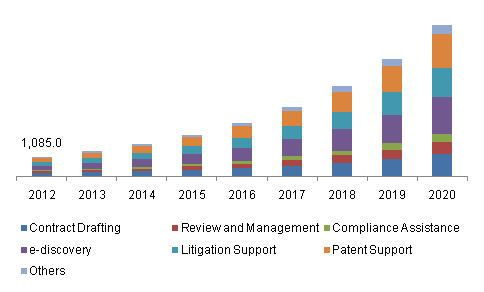Legal Process Outsourcing (LPO) is a practice where law firms or corporations outsource their legal tasks to external service providers. It involves sending legal work to countries where labor costs are significantly lower, such as India, Philippines, or South Africa. LPO has gained popularity among legal organizations as it offers numerous benefits, including reduced operational costs, improved efficiency, and access to expertise.
Benefits of LPO
Outsourcing legal processes can be highly advantageous for law firms and corporations. Some key benefits include:
Cost Reduction
One of the primary reasons for outsourcing legal processes is the substantial cost savings. By sending certain tasks offshore, firms can take advantage of lower labor costs in countries like India. This allows them to allocate their budget more effectively and focus on core legal activities.
Access to Expertise
LPO providers often have professionals with specialized knowledge in various legal fields. By outsourcing, law firms can tap into this expertise without having to hire additional in-house staff. This enables them to handle complex cases and legal matters more efficiently.
Increased Efficiency
Legal outsourcing enables law firms to streamline their operations. By delegating routine legal tasks to external service providers, lawyers can dedicate more time to core legal activities, such as case preparation, research, and client interaction. This leads to improved productivity and enhanced client satisfaction.
24/7 Work Cycle
Outsourcing legal processes to different time zones allows law firms to achieve round-the-clock service provision. This is particularly advantageous when it comes to meeting tight deadlines or delivering urgent legal documents. Lawyers can assign tasks to their offshore counterparts, who continue working on them while they are away, ensuring the work never stops.
Commonly Outsourced Legal Tasks
Various legal tasks can be outsourced to LPO providers. Some of the commonly outsourced legal tasks include:
Legal Research and Document Review
Legal research involves analyzing case precedents, statutes, regulations, and legal decisions to provide accurate and relevant information to lawyers. Document review involves sifting through large volumes of legal documents, identifying key information, and organizing it for easy access. Delegating these tasks to LPO providers frees up lawyers’ time and allows them to focus on more complex legal strategies.
Drafting and Reviewing Contracts
LPO providers often assist in drafting and reviewing various types of contracts, including employment agreements, leases, and partnership agreements. With their expertise, legal professionals in LPO firms can ensure that contracts comply with applicable laws, mitigate risks, and protect the interests of their clients.
Patent and Intellectual Property Support
Outsourcing patent and intellectual property support to LPO providers is a common practice. LPO professionals can assist with tasks such as patent research, patent drafting, trademark searches, and copyright registrations. This allows companies to protect their intellectual property assets while focusing on other core business activities.
E-discovery and Litigation Support
E-discovery involves the identification, preservation, and analysis of electronically stored information (ESI) for legal cases. LPO providers utilize advanced software and data analysis techniques to assist in e-discovery, ensuring efficient and accurate examination of digital evidence. This helps law firms to build stronger cases and provide a higher level of support during litigation.
Challenges and Risks
Despite its advantages, legal process outsourcing is not without its challenges and risks. Some of the common concerns include:
Data Security
Law firms handle sensitive and confidential information, which needs to be protected at all costs. Outsourcing legal tasks introduces the risk of data breaches or unauthorized access. To mitigate this risk, it is crucial for law firms to thoroughly vet LPO providers, ensuring compliance with data protection laws and implementing robust security measures.
Quality Control
Monitoring and maintaining the quality of work provided by LPO providers can be challenging. It is essential for law firms to establish clear communication channels, provide comprehensive instructions, and conduct regular quality checks to ensure that the outsourced work meets their expectations and standards.
Cultural Differences
Outsourcing legal tasks to different countries often involves working with professionals from diverse cultural backgrounds. These cultural differences can lead to misinterpretations or misunderstandings, affecting the overall efficiency and effectiveness of the outsourced work. Effective communication and cultural awareness training can help overcome these challenges.
Regulatory Compliance
Law firms must ensure that outsourced legal work complies with the relevant laws and regulations of their jurisdiction. Failure to adhere to the necessary legal requirements can lead to legal complications or ethical issues. Therefore, it is important for law firms to establish a clear understanding of the regulatory framework with their LPO providers and monitor compliance regularly.
Conclusion
Legal Process Outsourcing (LPO) has become an increasingly popular practice among law firms and corporations seeking to optimize their legal operations. By outsourcing legal tasks, firms can benefit from cost reduction, access to specialized expertise, increased efficiency, and round-the-clock service provision. Despite challenges, careful evaluation, implementation of security measures, and effective communication can help overcome risks associated with LPO. As the legal industry continues to evolve, LPO is expected to further revolutionize how legal services are delivered.
